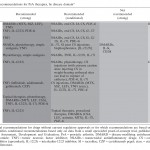Some patients with epilepsy have a higher risk of fracture due to falls, and some studies have suggested that anti-epileptic drugs may also contribute to the fracture risk. In a recent review, researchers examined if there is a link between epilepsy and osteoporosis, making recommendations to aid future research…




